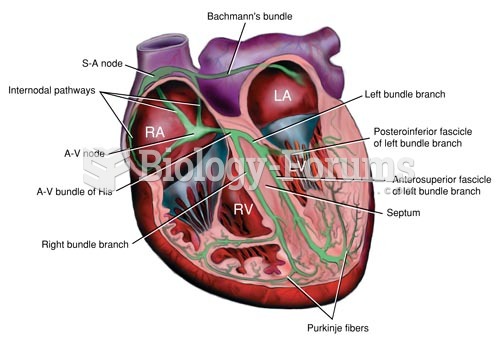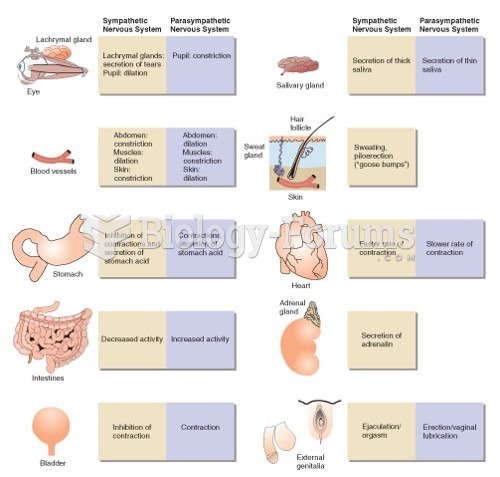|
|
|
Human kidneys will clean about 1 million gallons of blood in an average lifetime.
Hip fractures are the most serious consequences of osteoporosis. The incidence of hip fractures increases with each decade among patients in their 60s to patients in their 90s for both women and men of all populations. Men and women older than 80 years of age show the highest incidence of hip fractures.
Nearly 31 million adults in America have a total cholesterol level that is more than 240 mg per dL.
By definition, when a medication is administered intravenously, its bioavailability is 100%.
Symptoms of kidney problems include a loss of appetite, back pain (which may be sudden and intense), chills, abdominal pain, fluid retention, nausea, the urge to urinate, vomiting, and fever.







